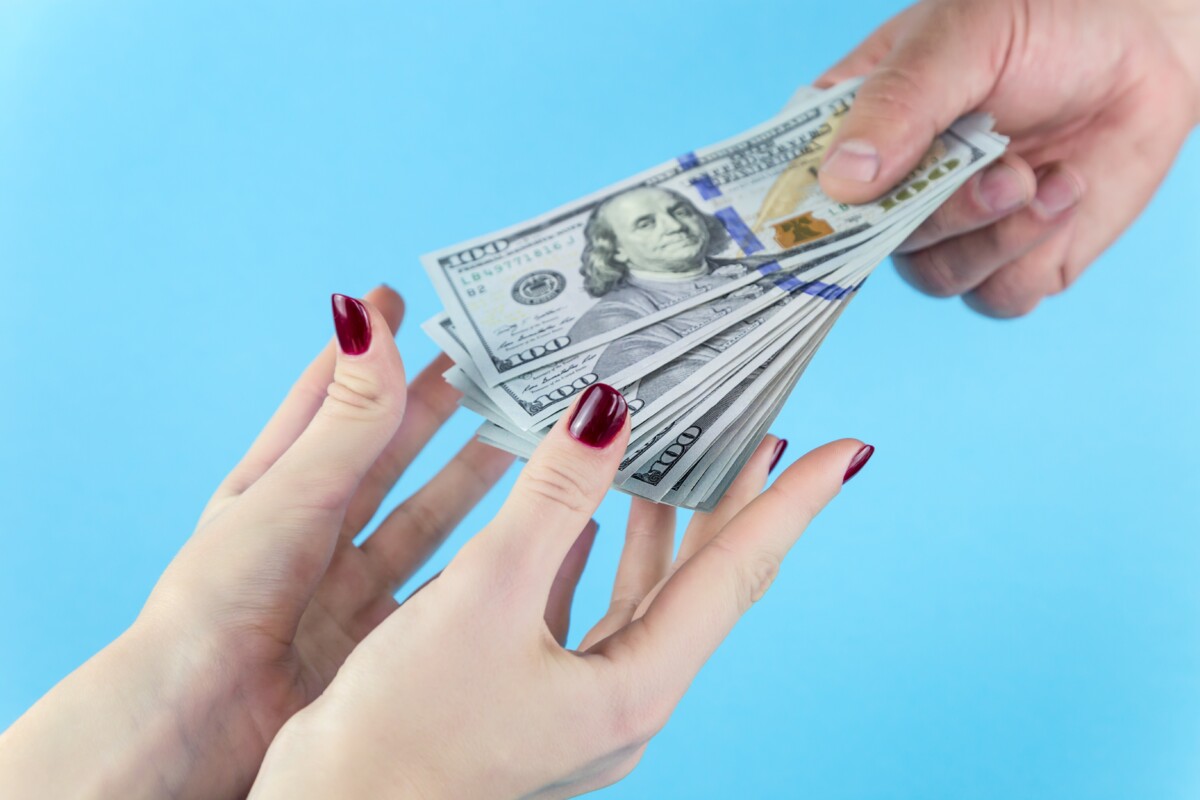The Trusted Choice for Cash Loans
Request Your Cash Advance or Personal Loan Now
The Trusted Choice for Cash Loans
Submit your information today!
Get lender-approved in as fast as 5 min!
Receive a decision as soon as the next business day!
Fast Funding
Get money as soon as the next business day



Understanding Payday Loan Fees and Interest Rates
Payday loans are popular for quick cash needs. But many borrowers don’t realize how much they truly cost. The payday loan fees and high APR (Annual Percentage Rate) can quickly turn a small loan into a big financial burden.
Understanding how payday loan interest works helps you borrow smarter and avoid paying more than you should. In this article, we’ll explain payday loan APR, fees, and interest in simple terms so you can make informed financial choices.
Need quick financial help with transparent rates? Visit ExpressCash or call (833) 856-0496 today.
What Is a Payday Loan?
A payday loan is a short-term loan meant to cover urgent expenses until your next paycheck. It’s usually easy to get—no credit check, fast approval, and quick cash transfer.
However, these loans come with high fees and interest rates, making them one of the most expensive forms of credit.
Here’s how it typically works:
-
You borrow a small amount (say $300–$500).
-
You repay the loan on your next payday, usually within 14–30 days.
-
The lender charges a flat fee or a percentage per $100 borrowed.
While this might sound simple, the true cost becomes clear once you calculate the payday loan APR.
What Is APR in Payday Loans?
APR (Annual Percentage Rate) is the total yearly cost of borrowing money, including interest and fees. It helps you compare different loan products.
For example:
-
A $15 fee on a $100 loan for 14 days sounds reasonable.
-
But when calculated annually, that’s over 390% APR — far higher than a credit card or personal loan.
This shows why payday loans should only be used for short-term emergencies, not ongoing expenses.
Want to understand your repayment terms before borrowing? Visit ExpressCash or call (833) 856-0496 for transparent loan options.
Common Payday Loan Fees Explained
Besides high interest, payday loans come with multiple additional fees. Knowing them can help you avoid surprises.
1. Origination Fee
Charged when you first take out the loan, this fee covers processing and setup.
2. Late Payment Fee
If you miss your due date, you’ll pay extra—often between $15 and $30.
3. Rollover Fee
If you can’t repay on time, some lenders allow an extension (or rollover). But each rollover adds a new fee and increases your total cost.
4. Non-Sufficient Funds (NSF) Fee
If your bank account doesn’t have enough funds when repayment is withdrawn, your bank may charge an additional penalty.
5. Collection Fees
If your loan remains unpaid, lenders may send it to collections and add more fees.
These small charges quickly add up, turning a $300 loan into $400 or more in a few weeks.
How Payday Loan Interest Works
Payday loan interest is not like regular loan interest. Instead of a percentage charged monthly, payday lenders usually charge a flat rate per $100 borrowed.
For example:
-
Borrow $100 → Pay $15 fee
-
Borrow $300 → Pay $45 fee
If you repay in two weeks, it might look like a small charge. But when calculated over a year, that’s equivalent to hundreds of percent in APR.
This is why it’s important to calculate the true interest cost before borrowing.
Need help comparing rates? Check out ExpressCash or call (833) 856-0496 to find fair and clear terms.
How to Calculate Payday Loan APR
You can calculate your payday loan APR with a simple formula:
APR = (Fee ÷ Loan Amount) × (365 ÷ Loan Term in Days) × 100
Example:
If you borrow $300 with a $45 fee for 14 days, the APR is:
(45 ÷ 300) × (365 ÷ 14) × 100 = 391% APR
That means you’re paying nearly four times the interest rate of most credit cards.
Why Payday Loan APRs Are So High
There are a few reasons why lenders charge such high rates:
-
Short loan term: Lenders earn money quickly from short durations.
-
High-risk borrowers: Many borrowers have low credit scores, increasing the lender’s risk.
-
No collateral: Payday loans are unsecured, so rates are higher to offset the risk.
-
Fast approval and processing: Convenience and speed come with added costs.
Although these loans serve an important purpose, the high payday loan fees can trap you in debt if you’re not careful.
Avoiding Hidden Payday Loan Costs
Here’s how to avoid paying unnecessary fees:
-
Read your contract carefully. Look for late payment or rollover clauses.
-
Ask about the total repayment amount before signing.
-
Avoid automatic rollovers. They add unnecessary costs.
-
Pay early if possible to reduce fees.
-
Compare lenders to find one with fairer rates.
For fair and transparent loan options, visit ExpressCash or call (833) 856-0496 to get started.
What Happens If You Can’t Repay on Time?
Missing payday loan payments can lead to:
-
Extra late fees and penalties.
-
Debt collection actions.
-
Bank overdraft charges.
-
Negative impact on your credit score.
If you can’t repay, contact your lender immediately. Many lenders offer extended payment plans to help you avoid further charges.
State Regulations on Payday Loan Interest
Payday loan regulations vary by state in the U.S. Some states cap interest rates, while others have banned payday lending completely.
For example:
-
Colorado: Caps APR at 36%.
-
Texas: No cap; lenders may charge over 600% APR.
-
New York: Payday lending is banned.
Before applying, check your state’s payday loan laws to understand your rights and protections.
Alternatives to Payday Loans
If you need quick cash but want to avoid high payday loan APRs, consider these safer options:
-
Personal loans: Lower interest and longer repayment time.
-
Credit union small loans: Designed for low-income borrowers.
-
Payment plans: Negotiate directly with your service providers.
-
Cash advances: Some online lenders offer flexible terms with clear fees.
You can also learn about qualifying for a secure cash advance through AdvanceCash, which offers clear guidance on safe borrowing.
How to Manage Payday Loan Repayment
If you already have a payday loan, managing it properly can help you stay out of debt.
Try these practical tips:
-
Prioritize repayment in your budget.
-
Avoid borrowing again to repay your existing loan.
-
Set reminders to make timely payments.
-
Seek financial counseling if debt feels overwhelming.
-
Build an emergency fund once your loan is paid off.
These small steps can protect you from recurring debt cycles.
Pros and Cons of Payday Loans
✅ Pros
-
Quick access to funds
-
Simple application process
-
No credit score requirement
❌ Cons
-
Extremely high interest rates
-
Short repayment terms
-
Risk of falling into debt cycles
-
Additional hidden fees
Understanding both sides helps you decide when—and if—a payday loan makes sense.
How to Choose a Transparent Lender
To avoid being overcharged, always work with a reputable lender. Here’s what to look for:
-
Clear disclosure: All rates and fees shown upfront.
-
No hidden charges: Avoid lenders with unclear contracts.
-
Positive reviews: Check customer feedback online.
-
Regulated by the state: Confirm licensing and compliance.
For transparent lending with no surprises, visit ExpressCash or call (833) 856-0496 for guidance.
The Role of Credit Score in Payday Loans
Most payday lenders don’t check credit scores, but that doesn’t mean your credit doesn’t matter. If you fail to repay, the lender may report it, which could lower your credit rating.
Building your credit with responsible financial behavior can open doors to better loan options with lower APR and more flexible terms.
Steps to Take After Repaying a Payday Loan
Once you’ve repaid your payday loan, it’s time to secure your financial future:
-
Review your spending habits to prevent borrowing again.
-
Start saving for emergencies.
-
Learn about safer credit options.
-
Track your credit score regularly.
Taking these steps helps you avoid high-cost loans in the future.
Payday loans can be a lifesaver during emergencies, but understanding their true cost is essential. The payday loan APR, fees, and interest rates can be much higher than they appear.
Before borrowing, always compare lenders, read the fine print, and calculate your total repayment. Knowledge is your best defense against hidden fees and debt traps.
Ready to borrow wisely? Get fast and clear financial solutions from ExpressCash or call (833) 856-0496 to speak with an expert today.
FAQs
1. Why is the APR so high on payday loans?
Because payday loans are short-term, the fees seem small but add up to a very high annual rate.
2. Are there any limits on payday loan interest rates?
Yes, some U.S. states cap payday loan interest, while others don’t.
3. Can I repay my payday loan early?
Yes, and doing so can save you money on interest and fees.
4. What happens if I can’t pay my payday loan on time?
You may face extra fees and a damaged credit score. Contact your lender for an extension plan.
5. What’s a safer alternative to payday loans?
Personal loans, credit union loans, or cash advances from trusted lenders like AdvanceCash.







